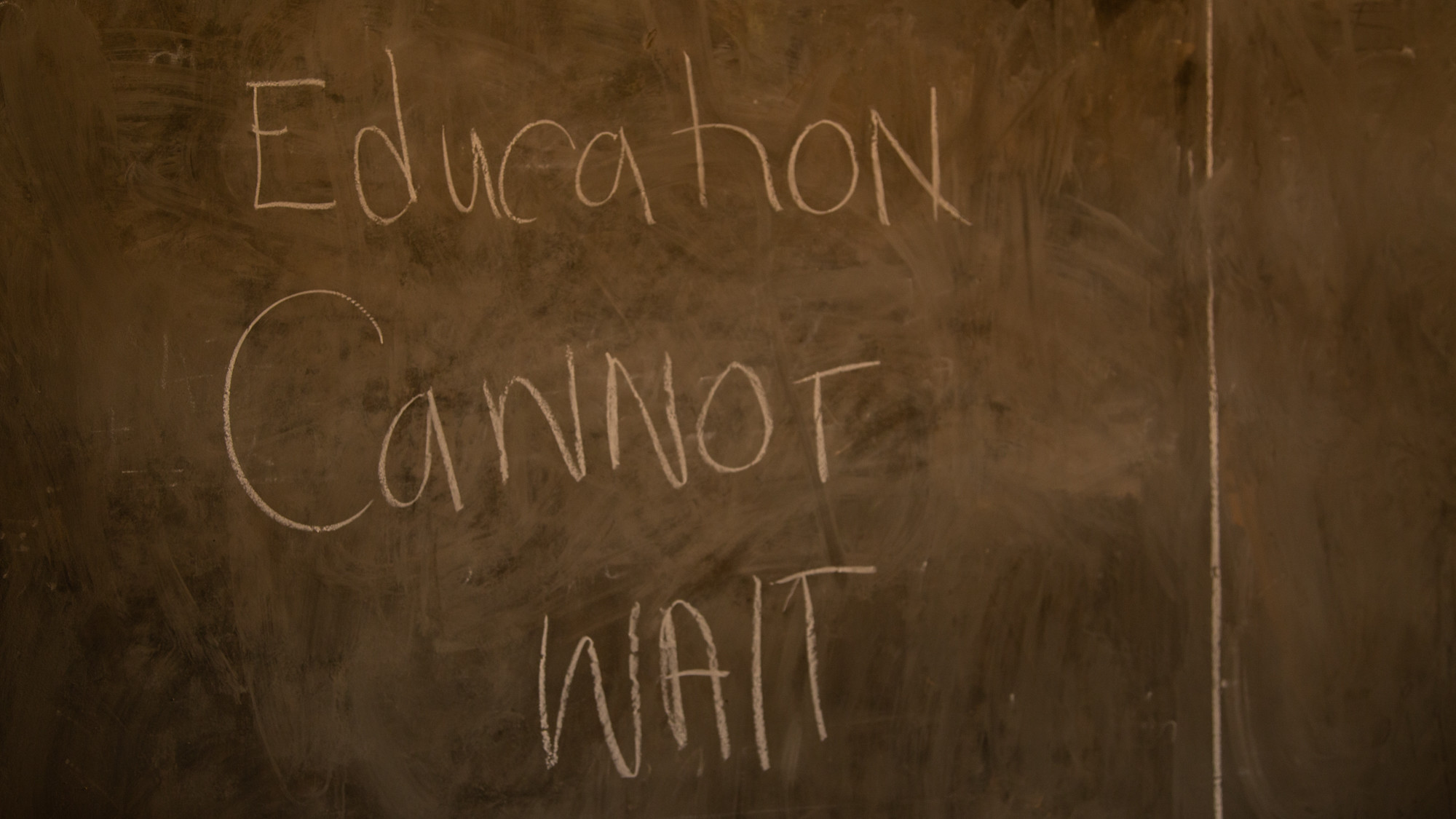
Early childhood development

This page looks at what early childhood development is, how it supports children’s nurturing care and development from birth to age five - and how Theirworld is campaigning for urgent action to make sure all children have access to the full range of nurturing care.
What is early childhood development?
Early childhood development supports children’s development from birth to age five. It includes programmes and services that supports nurturing care including health, nutrition, play, learning and protection.
Its interventions address four developmental domains of a growing child – physical, cognitive, linguistic and socio-emotional development.
Why is it important?
By the time a child reaches five years old, 90% of their brain has already developed – which means the progression from birth to school is the most important time of their lives.
Children from poorer and marginalised homes who are unable to access support are put at a distinct disadvantage. If they start school at five without early years’ support, they will have a limited vocabulary and ability to learn.
Developmental differences between those children who have what they need for healthy brains and bodies and those who do not can show up as early as nine months old. The impacts of inadequate care, nutrition and cognitive stimulation during these early months and years can last a lifetime.
Five key areas of quality nurturing care
Nutrition
Early childhood development with nutrition support for babies and toddlers, nursing mothers, and even pregnant women, since roughly 20% of chronic malnutrition begins before birth due to maternal malnutrition. early years programmes that support adequate nutrition include promoting exclusive breastfeeding for the first six months, providing food and nutrient supplements to mothers and older toddlers, and making sure children have access to clean water and sanitation facilities.
Health
Critical for young children is access to health care, starting with ante- and postnatal visits for pregnant women, a skilled birth attendant, and including vaccinations, treatment of chronic and acute illness, and routine check ups. Nutrition and health interventions go hand-in-hand with support for water and sanitation, which safeguards good nutrition and prevents deadly bacterial infection. These interventions include access to clean drinking water, hand washing practises, toilet facilities and proper disposal of diapers.
Play
Opportunities for play and early learning are just as important to healthy development as physical support. For babies and toddlers, this means interventions to support consistent nurture and responsive communication or “serve and return” interactions with adults, including home visits, training for caregivers, and access to quality childcare. For older children, preschool programmes are important opportunities for early learning, play, and developing social and emotional skills that underpin success in primary school.
Learning
The recent report by the Education Commission showed that preschool education is one of the best-proven practices for increasing participation and learning. The report said that participation in quality pre- primary programs increases the likelihood of primary school attendance and decreases grade repetition and dropping out. Good quality preschools also improve school readiness and can lead to better primary school outcomes, particularly for poor and disadvantaged students.
Protection
Child protection is an important component of ensuring healthy early development. This starts with registration at birth, so that children have proper legal standing and are guaranteed access to services such as education. Child protection also includes ensuring young children do not experience violence or neglect from caretakers, or endure constant insecurity and violence in their surroundings.
More investment in early childhood development is needed
Even though the importance of early years care has been thoroughly proven, investment in the zero to five age group is still far too small.
The influential Education Commission report highlighted that “total returns on early education are very high – in some cases up to $7 for every $1 spent – and returns on early nutrition can be many times higher. Early interventions provide the best chance to give each child an equal chance at success, no matter who they are or where they are born.”
Early interventions provide the best chance to give each child an equal chance at success, no matter who they are or where they are born.
Medical journal The Lancet calculated the cost of inaction on early childhood development and found that “Children who do not meet their developmental potential may forfeit up to a quarter of adult earnings, and cost some low and middle income countries as much as twice their national expenditure on health”.
What is Theirworld's campaigning objective?
Theirworld’s #5for5 campaign aims to raise awareness of early childhood development and put pressure on world leaders to take urgent action to make sure all children are given the best start in life.
What will it take to achieve this?
Promises have been made: the new Sustainable Development Goals – adopted by world leaders in September 2015 at an historic UN Summit – include a target to ensure that by 2030 all children ‘have access to quality early childhood development, care and pre-primary education.’
To reach this goal world leaders need to commit to a dramatic increase in funding and take action to support early childhood development programmes to make sure all children – especially the poorest and most marginalised – are given the best start in life.
Sarah Brown, President of Theirworld, said: “Whether or not children have access to the best start possible in life is determined by two important factors – sheer chance and political will. The political leaders and those with deep pockets need to follow up and urgently begin to establish the effort and funding to make this happen.“
Useful links
- Stop neglecting pre-primary education investments education investments (June 2016)
- Early childhood development in conflict and protracted crisis (June 2016)
- Early childhood development and the childcare crisis (June 2016)
- The promise of education for Syrian refugees (August 2016)
- Safe Spaces: Urgent need for early childhood development in emergencies (September 2016)
- Gaps and inequities in Early childhood development in Africa (October 2016)
Next resource
